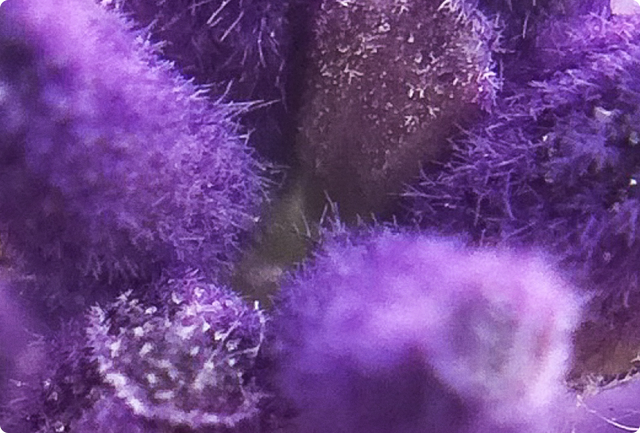About the Oil
Holy Basil, also known as Tulsi, is considered the “Queen of Herbs” in Ayurvedic tradition. Steam-distilled from the leaves and flowering tops of Ocimum sanctum, this oil carries a complex, herbaceous, and slightly spicy aroma. It’s deeply revered not only for its spiritual significance, but also for its impressive therapeutic profile—offering stress support, immune defense, and cognitive clarity.
Why You Would Use Holy Basil Essential Oil
Tulsi essential oil offers a multi-dimensional approach to well-being. It's the oil to turn to when you want to:
- Support your body’s stress response and mood balance
- Enhance focus, clarity, and cognitive performance
- Soothe inflammation and oxidative stress
- Uplift your energy and mental resilience
Clinical Findings
| Study | Participants & Duration | Key Results | Reference |
|
Stress-Modulating Effect |
Observation/Review |
Documented adaptogenic activity; supported cortisol regulation and stress resilience |
Jamshidi, N., & Cohen, M.M. (2017) |
|
Cognitive & Neuroprotective Support |
Review of multiple trials |
Improvement in reaction time, attention span, memory; suggested neuroprotective benefits |
Cohen M. M. (2014) |
|
Essential Oil Composition |
Chemotype profiling (12 Ocimum varieties) |
High in eugenol, methyl eugenol, caryophyllene, and linalool; active against inflammation |
Viña & Murillo, 2003 |
Behind The Science (Made Simple)
Holy Basil essential oil works like an herbal adaptogen in aromatic form—nourishing your body’s systems when they’re overworked, under pressure, or simply out of sync.
- Eases stress and uplifts mood: Compounds like eugenol help modulate cortisol, support adrenal balance, and lift low energy.
- Shields cells from damage: Rosmarinic acid and other antioxidants neutralize oxidative stress—key in modern-day wellness.
- Defends on all fronts: Tulsi oil exhibits strong antibacterial, antiviral, and antifungal effects, making it a powerhouse for seasonal support.
- Supports the mind: Holy Basil has a long-standing history of enhancing memory and mental alertness, validated by studies showing improvements in reaction time and cognition.
How and Where It Grows
Tulsi is native to the Indian subcontinent but grows in warm, subtropical and tropical climates worldwide. The plant thrives in well-drained, fertile soils with plenty of sunlight. It is typically harvested just before flowering for peak essential oil potency, then steam-distilled from the leaves and flowers.
Use in Ancient Medicine
In Ayurveda, Tulsi is revered as a sattvic herb—meaning it nourishes both body and spirit. Used for more than 3,000 years, it is known to balance all three doshas (Vata, Pitta, and Kapha) and is taken internally, applied topically, or used in sacred rituals to promote longevity, clarity, and protection from illness. It is one of the few botanicals given the status of a “rasayana”—a rejuvenator of mind and life force.
Symbolism
Tulsi embodies purity, protection, and spiritual awakening. Often planted at temple entrances or in household courtyards in India, the plant is believed to purify the air and the soul. It symbolizes resilience in the face of adversity—growing strong, fragrant, and healing, even in harsh conditions.
INFORMATION provided is intended for informational purposes only and is not meant to diagnose, treat, cure, or prevent any disease. Statements have not been evaluated by Health Canada or the FDA. Please consult a qualified healthcare provider before using essential oils for therapeutic purposes.
References
- Viña A, Murillo E. (2003). Essential Oil Composition from Twelve Varieties of Basil (Ocimum spp) Grown in Colombia. J. Braz. Chem. Soc., 14(5):744–749.
- Cohen M. M. (2014). Tulsi - Ocimum sanctum: A herb for all reasons. Journal of Ayurveda and integrative medicine, 5(4), 251–259. https://doi.org/10.4103/0975-9476.146554
- Yamani HA, Pang EC, Mantri N and Deighton MA (2016) Antimicrobial Activity of Tulsi (Ocimum tenuiflorum) Essential Oil and Their Major Constituents against Three Species of Bacteria. Front. Microbiol. 7:681.doi: 10.3389/fmicb.2016.00681
- Jamshidi, N., & Cohen, M. M. (2017). The Clinical Efficacy and Safety of Tulsi in Humans: A Systematic Review of the Literature. Evidence-based complementary and alternative medicine : eCAM, 2017, 9217567. https://doi.org/10.1155/2017/9217567
- Zheljazkov, V. D., Cantrell, C. L., Evans, W. B., Ebelhar, M. W., & Coker, C. (2008). Yield and Composition of Ocimum basilicum L. and Ocimum sanctum L. Grown at Four Locations. HortScience, 43(3), 737-741. https://www.doi.org/10.21273/HORTSCI.43.3.737








